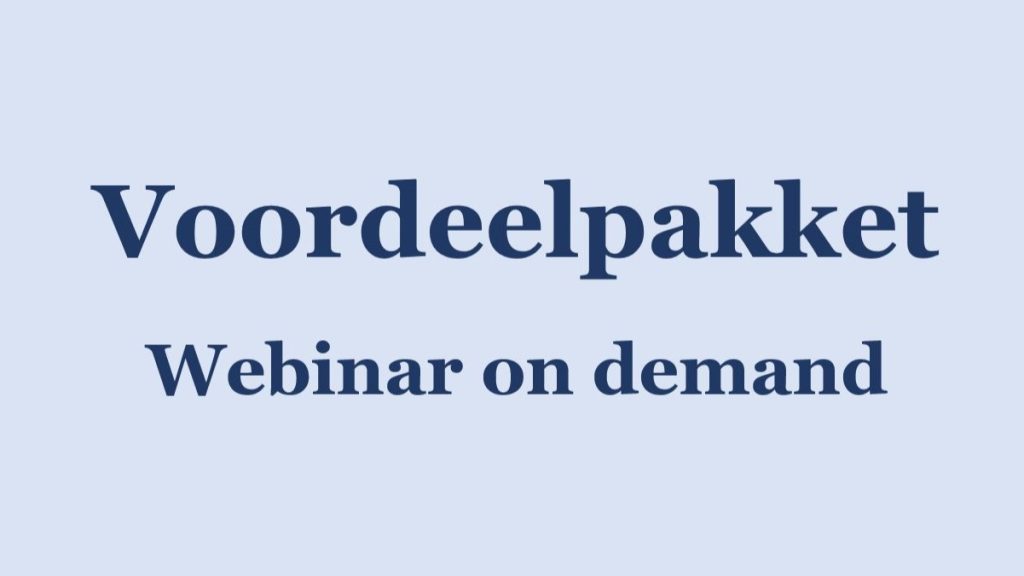HR-aspecten bij M&A transacties
Mr. Nele Van Kerrebroeck (Linklaters)
Webinar op donderdag 16 mei 2024
Aandeelhoudersovereenkomsten
in het licht van de nieuwe wetgeving
Mr. Michaël Heene (DLA Piper)
Webinar op vrijdag 31 mei 2024
Ondernemingsstrafrecht:
wat wijzigt er door boek I en boek II van het Strafwetboek?
Mr. Stijn De Meulenaer (Everest)
Webinar op dinsdag 11 juni 2024
From the real seat theory to the statutory seat theory: important implications for your company (EY Law)
Authors: Laura Dermine, Peter Suykens and Ann-Sophie Haghedooren (EY Law)
Publication date: 17/12/2019
According to the new Belgian Code on Companies and Associations, the Belgian legislator recently decided to change the real seat theory into the statutory seat theory. This new principle entered into force with immediate effect as from 1 May 2019 both for newly incorporated and existing companies and has direct implications on the nationality of your company and the applicable law.
The real seat theory under pressure
Pursuant to case law of the European Court of Justice on corporate mobility, the real seat doctrine came under pressure as the freedom of establishment always applies to companies incorporated in EU Member States, irrespective of the location of their genuine economic activities. Consequently, non-domestic companies must be dealt with in the same way and benefit the same rights as domestic companies, with the result that all companies incorporated in EU Member States must be able to immigrate to another EU Member State.
General impact
The choice for the statutory seat theory involves that no longer the location of the principal establishment determines the nationality of a company, but only the company’s country of residence designated in its articles of association. This allows companies to develop their activities abroad, while retaining its legal personality and functioning of the bodies, regardless of whether there is a commercial link between the non-domestic company and the host state.
The adoption of the statutory seat as the ultimate connecting factor has direct implications for the applicable law which governs all aspects of company and association law. However, there is no impact on other legal fields such as tax law, insolvency law and employment law, which will continue to have their own independent connecting factors (i.e. the location of the company’s economic activities).
Therefore, the Belgian accounting law is no longer applicable to companies with their registered office abroad while developing their economic activities in Belgium. Nonetheless, foreign companies with a branch in Belgium are still required to draft annual accounts according to the law of the country under which the company is incorporated. Although there is no obligation to publish these annual accounts, companies are obliged to file them with the National Bank of Belgium
Possible scenarios in the Benelux
As a consequence of the adoption of the statutory seat theory, companies may have lost their Belgian nationality, while other companies suddenly involuntary acquired the Belgian nationality or a dual nationality or worse, became stateless. Therefore, it is essential to be aware of the implications of the adoption of the statutory seat doctrine.
As each country is free to opt for the statutory seat doctrine or the real seat doctrine, an examination of the possible implications per each member state is inevitable. In addition, each country can apply either of both doctrines in a reduced or stricter form, with the result that the impact of the doctrine might differ from country to country.
In particular, following cases may occur and may affect the nationality of a company in the Benelux:
1. Companies with their real seat in Belgium, but incorporated under Dutch law, had a dual nationality BE-NE until 30 April 2019 given the fact that The Netherlands adhere the statutory seat doctrine and Belgium the real seat doctrine. However, with the change from the real seat theory into the statutory seat theory, these companies have lost the Belgian nationality as of 1 May 2019.
In case the company is willing to obtain the Belgian nationality again it must either move the statutory seat to Belgium by applying the cross-border conversion procedure in Belgium and the Netherlands in order to acquire again the Belgian nationality or deregister the company with the commercial court and open a branch in Belgium as an alternative solution.
2. As Luxembourg applies the real seat doctrine, companies with their statutory seat in Luxembourg and their real seat in Belgium had the Belgian nationality until 30 April 2019. Since the 1st of May 2019 these companies have lost their Belgian nationality and obtained the Luxembourg nationality instead. Luxemburg adheres the real seat theory but acknowledges the statutory seat as an alternative connecting factor in order to acquire the nationality of Luxembourg. This change of nationality can be remedied in the same way as in the first scenario (see point 1).
Be aware that it may occur that a country applying the real seat doctrine does not accept the statutory seat as an alternative or subsidiary connecting factor as is the case in Luxembourg. In that case, the Belgian company would become stateless. Particular attention has to be paid to whether or not the host state acknowledges further alternative or subsidiary connecting factors, as well as the scope of the connecting factor in order to determine the impact and avoid a status of statelessness, undesired change of nationality or dual nationality. Please note that the Belgian legislator does not accept any other alternative connecting factors than the statutory seat of a company.
3. Companies with their real seat in Luxembourg and their statutory seat in Belgium had the Luxembourg nationality until 30 April 2019. As a result, these companies obtained the dual nationality BE – LUX with effect as from 1 May 2019. Consequently, these companies must comply with the law of both countries which is time-consuming and entails extra costs.
Introduction of a procedure for cross-border conversions
The Belgian legislator implemented a new specific cross-border conversion procedure in the new Companies and Associations Code in order to ensure the continuity of the legal personality of a company and to encourage emigration and immigration according to the European principle of freedom of establishment. Furthermore, this procedure finally creates a legal framework as these principles have already been implemented in practice due to the case law of the European Court of Justice.
The conversion procedure can be applied worldwide (i.e. also outside the European Union), provided that the host state accepts this procedure, in the event of the relocation of a Belgian company whereby the company loses its connecting factor with Belgium or the immigration of a foreign company to Belgium.
Directive on cross-border conversions
On 27 November last the European Parliament and the European Council adopted a directive with regard to cross-border conversions, mergers and divisions of companies, which must be transposed into national law by 31 January 2023 at the latest.
With this directive, the procedure to be followed in case of a cross-border conversion will be fully regulated throughout the European Union. It is contemplated to enable companies to convert by changing their legal form in the original member state into a similar legal form of another member state through a multi-layered procedure.
As the aforementioned procedure under the new Belgian Code on Companies and Associations only applies in Belgium, this legislative initiative facilitates companies willing to emigrate or immigrate in the EU. Currently, companies willing to transfer their registered offices to another Member State need to rely on national laws regarding cross-border conversions (if available).
» Bekijk alle artikels: Vennootschappen & Verenigingen
















